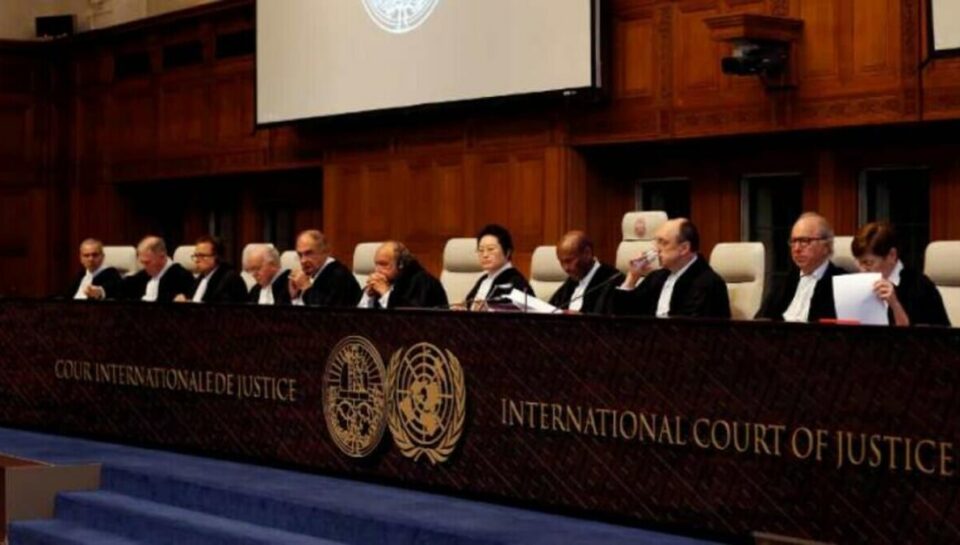Much to the chagrin of Pakistan and the delight of India, the International Court of Justice (ICJ) ordered Pakistan to stay the hanging of self-confessed Indian spy Kulbhushan Jadhav.
Announcing the verdict, presiding Judge Ronny Abraham said, “Pakistan should take measures to ensure that Jadhav is not executed until ICJ’s verdict.”
He further asserted “court considers it a failure on the part of Pakistan to present counselors to Jadhav,” Abraham said. “A link exists between the rights invoked by India and the provisional measures being sought by the state.”
Provisional measures were announced after the court established the urgency of the case and its jurisdiction.
There are no reasons for India to be elated and Pakistan to be dejected.
The spirit of the interim order is the court has taken up the case for further proceedings; the stay is ad-hoc and applicable till the final verdict. If anything, Pakistan should be relieved because the case has brought multilateralism back into the equation in regards Indo-Pak ties. It must be pointed out that India has time and again desisted involvement of international organizations in the resolution of disputes. It could be rightly argued that the order by Judge Ronny Abraham did something which Pakistan wanted: Internationalize the Indo-Pak tiff.
The Attorney General Ashtar Ausaf stated:
“The court has clearly underscored that the provisional measures are without prejudice to the final determination of the merits and jurisdiction of the case.”
The order is a temporary relief and gives the court time to consider all aspects of the case at a later date.
In its order, the court pointed out the following:
“India could not satisfy ICJ over the merit of the case. Access to Jadhav is not possible under Vienna Convention. Vienna Convention does not apply to persons suspected of espionage.”
This is enough to understand that the onus is on India to prove the merits of the case.
India, through a very well-orchestrated media and lobbying campaign has created a narrative of being a victim of Pakistan-sponsored terrorism. It tries to maintain a high moral ground of not being involved in sub-conventional war with Pakistan. Now, India has to proof their non-complicity in subversive activities against Pakistan in an international court.
Pakistan asserts that subversive forces are chiefly responsible for the spread of terrorism in the country. It also enunciates in no uncertain terms that India and Afghanistan are fomenting trouble. The nexus of Research and Analysis Wing (R&AW) and National Directorate of Security (NDS) are not only providing finance to terrorist outfits, but are also providing support at the operational and tactical levels. However, the argument does not find any international traction and the US repeatedly echoes the views of Kabul and Delhi. Pakistan is berated, blamed and questioned for being obsessed with India. Pakistani claims were often brushed aside and termed as mere concoctions and made out of sheer paranoia. By bringing undeniable proofs to the fore in the ICJ, Pakistan will be able to forcefully drive home its point. An assiduous preparation of the case can not only help Pakistan clinch victory, but gives Pakistan a great chance put across the missing narrative to the international audience. A resolve to fight the case in The Hague will obviate doubts regarding the authenticity of Pakistani claims about Jadhav. Pakistan will be freed from the accusation of taking confessions under duress of Jadhav. Thus, we can argue that the order has provided an opening for Islamabad to aggressively unveil nefarious India designs.
There is another silver-lining to it. India refused to accept the terms of the bilateral treaty of 2008 and went to the ICJ. This theoretically means that Pakistan can take other Indo-Pak squabbles to The Hague in the hope that the court will nullify bilateral treaties if and when brought up. This will rather make India uncomfortable, to say the least.
With Pakistan, already under immense pressure from the US to “do more”, it would not be advisable to vehemently repudiate the interim order. Fighting it out with a well-thought-out strategy can actually help Islamabad in more ways than one. Firstly, Pakistan’s noncompliance will give further credence to its “rogue state” perception. This is something which would be ideal for Kabul and Delhi.
There is a need to fathom that under a tense region environment, which is evident from a heated LoC; fluid situation on the Afghan border and a likely policy shift of the US, Pakistan can ill-afford to lock horns on international mediation.
It is important to remember that the US is mulling over a policy which would be applicable to Pakistan too. The top brass of the US Intelligence has reiterated their reservations about Pakistan and its willingness to control inimical forces to Kabul and Delhi. It would therefore be prudent to take the interim order as an opportunity to exonerate its long-held, oft-repeated and ignored claims.
This could be a major stride in exposing the grand Indian designs, but it depends upon meticulous preparing and conduct of proceedings.


